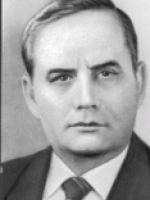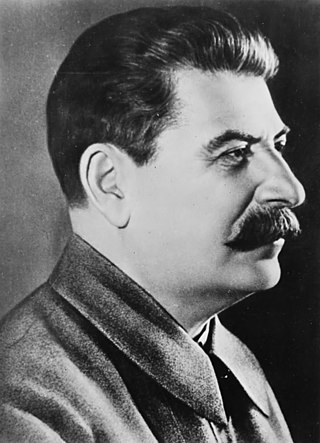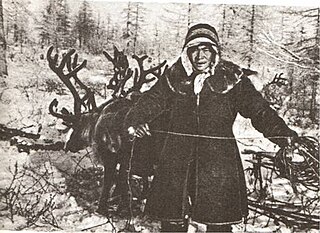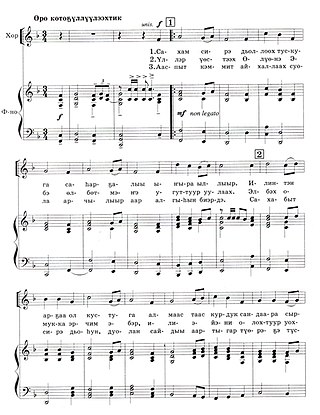
Vladimir Antonovich Ivashko was a Soviet Ukrainian politician, briefly acting as General Secretary of the Communist Party of the Soviet Union (CPSU) during the period from 24 to 29 August 1991. On 24 August Mikhail Gorbachev resigned from the post, and on 29 August the CPSU was suspended by the Supreme Soviet. Before becoming General Secretary he had been voted Gorbachev's Deputy General Secretary within the Party on 12 July 1990, a newly created position as a result of the 28th Congress of the Communist Party.

The general secretary of the Central Committee of the Communist Party of the Soviet Union was the leader of the Communist Party of the Soviet Union (CPSU). From 1924 until the country's dissolution in 1991, the officeholder was the recognized leader of the Soviet Union. Prior to Joseph Stalin's accession, the position was not viewed as an important role in Vladimir Lenin's government and previous occupants had been responsible for technical rather than political decisions.

The president of the Soviet Union, officially the president of the Union of Soviet Socialist Republics, abbreviated as president of the USSR, was the head of state of the Union of Soviet Socialist Republics from 15 March 1990 to 25 December 1991.

Mátyás Rákosi was a Hungarian communist politician who was the de facto leader of Hungary from 1947 to 1956. He served first as General Secretary of the Hungarian Communist Party from 1945 to 1948 and then as General Secretary of the Hungarian Working People's Party from 1948 to 1956.

Dolgans are a Turkicized Tungusic ethnic group who mostly inhabit Krasnoyarsk Krai, Russia. They are descended from several groups, particularly Evenks, one of the Indigenous peoples of the Russian North. Dolgans are the most closely related to the Evenks. They adopted a Turkic language sometime in the early 19th century. The 2010 Census counted 7,885 Dolgans. This number includes 5,517 in Taymyrsky Dolgano-Nenetsky District.

The Yakut Autonomous Soviet Socialist Republic, also known as Soviet Sakha, Soviet Yakutia or the Yakut ASSR, was an autonomous republic of the Russian SFSR within the Soviet Union.

The state flag of the Sakha Republic (Yakutia) in Russia is one of the official symbols of the Sakha Republic, alongside the coat of arms and the national anthem of the Sakha Republic. The flag has four horizontal stripes. From top to bottom, the stripes are light blue, white (1/16), red (1/16), and green (1/8). The flag has been used officially as the flag of the Sakha Republic since 14 October 1992. The light blue stripe is charged with a white disc in the center. The diameter of the disc is 2/5 of the flag's width.

The First Secretary of the Communist Party of Tajikistan was the head of the Communist Party of Tajikistan and the highest Executive power in the republic of Tajikistan from 1924 until November 1990.

Mykola Oleksiiovych Skrypnyk, was a Ukrainian Bolshevik revolutionary and Communist leader who was a proponent of the Ukrainian Republic's independence, and later led the cultural Ukrainization effort in Soviet Ukraine. When the policy was reversed and he was removed from his position, he committed suicide rather than be forced to recant his policies in a show trial. He also was the Head of the Ukrainian People's Commissariat, equivalent to the modern-day position of Prime Minister of Ukraine.

The Head of the Sakha Republic is the highest office in the Sakha Republic. The term of office is five years.

The state anthem of the Sakha Republic is the regional anthem of the Sakha Republic, a federal subject of Russia. It is one of the official symbols of the Sakha Republic, along with the flag and the coat of arms of the Sakha Republic. It was originally written in the Yakut language by Savva Tarasov and Mikhail Timofeyev. The anthem was translated into Russian by Vladimir Fedorov. The music was composed by Kirill Gerasimov. It was officially adopted on 15 July 2004. The anthem's music is played in F major.
Aleksandr Vlasov was a Soviet politician, who held different cabinet posts, including interior minister and prime minister. He was the last communist prime minister of Russia, and a close ally of Mikhail Gorbachev.
The First Secretary of the Karelian regional branch of the Communist Party of the Soviet Union was the position of highest authority in the Karelian ASSR in the Russian SFSR, and in the Karelo-Finnish SSR (1940–1956) of the Soviet Union. The position was created in 1921, and abolished in August 1991. The First Secretary was a de facto appointed position usually by the Politburo or the General Secretary himself.
The First Secretary of the Mordovian regional branch of the Communist Party of the Soviet Union was the position of highest authority in the Mordovian AO (1930–1934) and the Mordovian ASSR (1934–1991) in the Russian SFSR of the Soviet Union. The position was created in September 1928, and abolished in August 1991. The First Secretary was a de facto appointed position usually by the Politburo or the General Secretary himself.
The First Secretary of the Mari regional branch of the Communist Party of the Soviet Union was the position of highest authority in the Mari AO (1920–1936) and the Mari ASSR (1936–1991) in the Russian SFSR of the Soviet Union. The position was created on February 24, 1921, and abolished on August 25, 1991. The First Secretary was a de facto appointed position usually by the Politburo or the General Secretary himself.
The First Secretary of the Abkhaz regional branch of the Communist Party of the Soviet Union was the position of highest authority in the SSR Abkhazia (1921–1931) and the Abkhaz ASSR (1931–1991) in the Georgian SSR of the Soviet Union. The position was created on February 14, 1921, and abolished in 1991. The First Secretary was a de facto appointed position usually by the Politburo or the General Secretary himself.
The following lists events that happened during 1923 in the Union of Soviet Socialist Republics.

The coat of arms of the Sakha Republic, in the Russian Federation, is an official symbol of the Sakha Republic, alongside the flag and the national anthem of the Sakha Republic. The coat of arms consists of a circle, in the center of which is a red silhouette of a rider on horseback holding a banner, based on the prehistoric petroglyphs of the "Shishkin pisanitsa", against a white sun background. The central image is framed with a traditional Sakha ornament in the form of seven rhombic crystal-like figures and the inscriptions "Республика Саха (Якутия) • Саха Өрөспүүбүлүкэтэ". This coat of arms has been used officially since 26 December 1992.

Maxim Kirovich Ammosov was a Yakutian revolutionary and Soviet politician who played a leading role in the establishment of the Yakut Autonomous Soviet Socialist Republic.